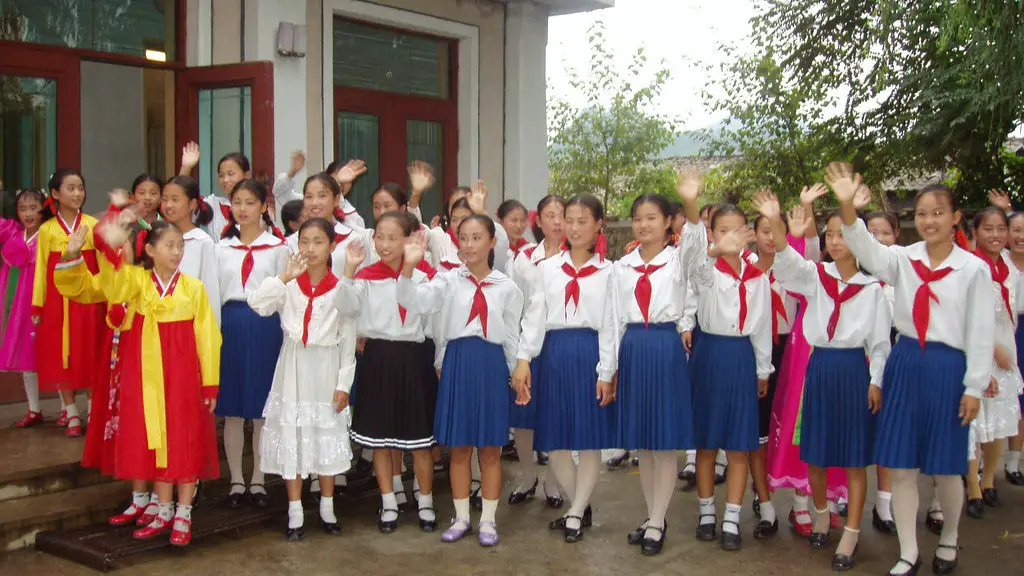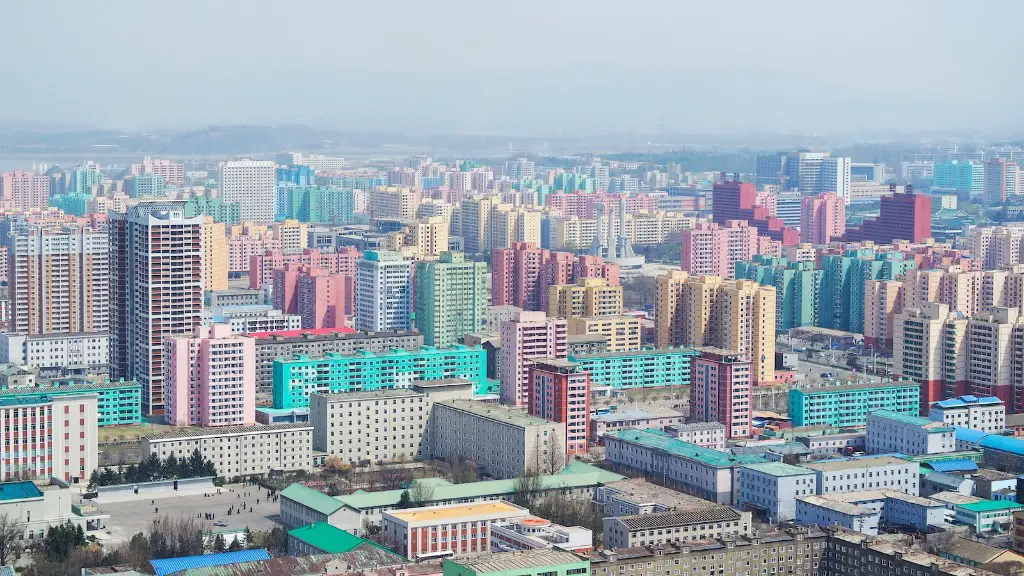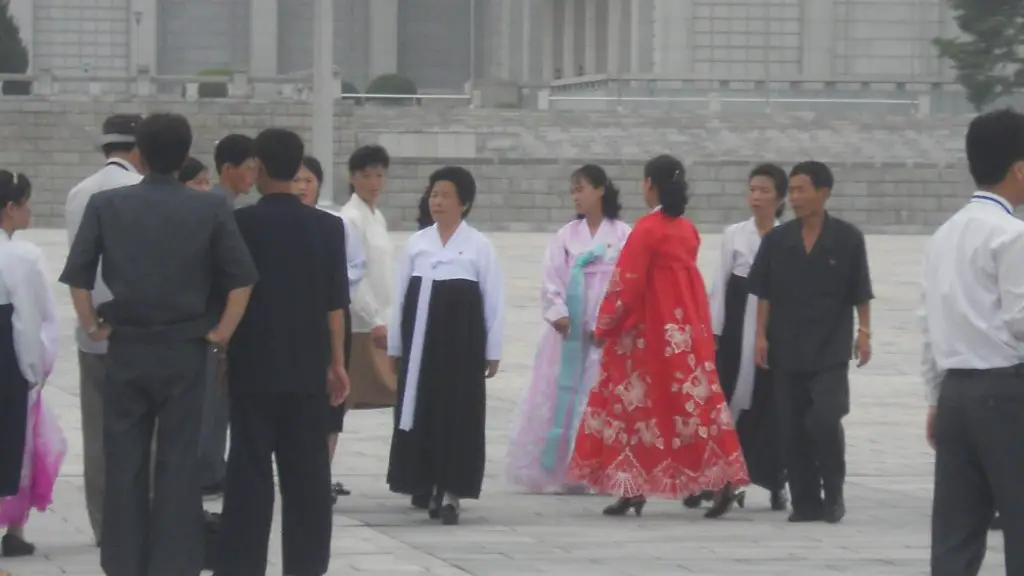Background Information
The U.S. and North Korea have had a strained relationship for decades. Since the end of the Korean War in 1953, very little progress has been made to improve relations, despite a variety of attempts over the years. North Korea has one of the world’s most advanced missile technology and nuclear weapons programs. In recent years, they have aggressively sought to develop more missiles and warhead capability, with the goal of becoming a nuclear power. As a result, the threat of a nuclear conflict involving the U.S. and North Korea has become increasingly real in recent years.
Deployment of Forces
In the event of a U.S. attack on North Korea, the U.S. would deploy military forces to the region. This could include Navy warships, Air Force aircraft, and ground forces from the Army and Marines. Additionally, Special Operations Forces would likely be used in the event of an attack. The purpose of these forces would be to secure the area and to provide a deterrent against further aggression from North Korea. Additionally, other NATO countries may be asked to contribute military resources in the event of an attack as well.
Strategic Bombing
The U.S. would likely engage in strategic bombing of North Korea’s military and industrial infrastructure in an effort to weaken the regime and reduce their capability to retaliate. That said, such bombings of civilian and civilian-adjacent targets have been shown to be largely ineffective at producing lasting results and may even cause more harm in the long run. Additionally, the use of strategic bombing runs the risk of igniting a much greater war with dire consequences.
Political Pressure
The U.S. would also likely use diplomatic and economic pressure against North Korea in an effort to force them to the negotiating table. This could include a variety of diplomatic measures, such as sanctions or travel restrictions, as well as economic measures like placing restrictions on foreign aid or halting trade with the country. Such measures could be used to try to impede the North Korean government’s ability to support its military ambitions as well as to make life more difficult for the North Korean people.
Nuclear Deterrence
The U.S. also has the potential to use nuclear weapons as a last resort in the event of a conflict with North Korea. The use of nuclear weapons is highly controversial, however, and its use is generally seen as more of a deterrent than an actual offensive weapon. That said, such a decision is one that would need to be made carefully, as the consequences of nuclear war could be far reaching.
The Role of China
There is also the possibility that China could become involved in the conflict. China has a long history of close ties with North Korea and is seen as a key ally in regional affairs. The U.S. would likely seek to enlist China’s support in the event of a conflict, as well as use diplomatic measures to try to ensure that China does not become embroiled in the fighting.
Preemptive Action
The U.S. may also look to engage in preemptive action in the event of a conflict. This could include engaging in covert operations or launching airstrikes in an effort to disrupt the North Korean ability to launch an attack or invade. Preemptive action is typically controversial, as it may be seen as a violation of the other country’s sovereignty, as well as running the risk of sparking an even larger conflict.
Implications of Escalating Tensions
The potential for a conflict between the U.S. and North Korea is a highly concerning one. Such a conflict has the potential to cause a great deal of disruption and suffering, both in the region and globally. Additionally, it could lead to an escalation of tensions between the two countries, potentially leading to a full-scale war. In this case, the consequences for the world could be dire.
Regional Impact of Conflict
A conflict between the U.S. and North Korea would likely have a significant impact on the region as a whole. It’s possible that other countries in the region could be drawn into the conflict as well, leading to further destabilization. Additionally, a war could lead to a massive influx of refugees, further destabilizing the region.
Economic Implications of Conflict
A conflict between the U.S. and North Korea would also have far-reaching economic consequences. It’s likely that the global economy would suffer in the wake of a conflict, as markets around the world react to the news of a potential war. Additionally, there would be a significant financial burden placed on both countries, as well as the global community, in the aftermath of a conflict, as the cost of rebuilding would be immense.
Armed Action and Diplomacy
The U.S. may ultimately choose to use both armed action and diplomacy when dealing with North Korea. On one hand, military action has the potential to disrupt North Korean operations and slow their advancement of weapons of mass destruction. On the other, diplomatic efforts may be necessary to resolve the underlying issues between the two nations and avoid the possibility of a full-scale conflict.
Maintaining Sanctions and Diplomatic Isolation
The U.S. may also choose to utilize economic sanctions and diplomatic isolation as part of their strategy. Such tactics could be used to disrupt North Korea’s ability to further develop nuclear technology and to put pressure on the regime to make political and economic concessions. This could ultimately lead to a more peaceful resolution of the conflict.
Options for De-Escalation
In the event of a conflict, the U.S. would also likely seek out options for de-escalation. These could include negotiations and diplomatic efforts with North Korea as well as military responses that are targeted at reducing the risk of an all-out war, such as defensive and targeted operations.
The Role of Allies
The U.S. may also seek to enlist the support of its allies in the region in the event of a conflict. This could include other countries in the region, such as South Korea and Japan, as well as regional organizations and global organizations such as the UN. Such support could bring additional resources to the conflict and help to de-escalate tensions.



